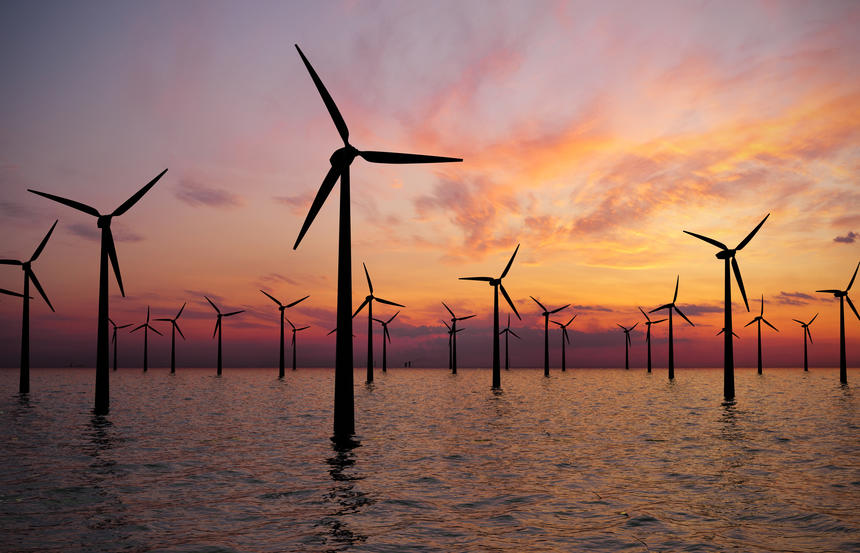- ESG is becoming more and more impactful on the investment cases of the names we hold
- Companies’ ESG strategies are directly linked to the long-term sustainability of their earnings and dividend distributions
- Sectors that are historically associated with high dividends such as tobacco, alcohol and energy are for us not investable us due to sustainability concerns
- Investing in ESG-aligned companies and sectors does not mean sacrificing yield.
Some investors still believe that income and ESG are mutually exclusive.
In our view, this stance is not only outdated, but carries significant risk as ESG is now central to any long-term investment case.
Our distinct approach to global equity income investing
At the heart of our approach to global equity income investing lie three key traits:
- Selecting companies with tailwinds from long-term secular themes we believe will prove resilient drivers of both earnings and dividend growth
- Finding leading companies within these themes with attractive and growing dividends
- A clear focus on sustainability: strong management of both ESG risks and opportunities that helps companies navigate non-financial risks that can have significant financial impact.
Non-traditional thinking
Global equity income funds have traditionally focused on dividend-rich sectors such as Tobacco, Alcohol and Energy.
Tobacco and alcohol stocks, for example, have long been considered recession-proof and reliable dividend payers, with reputations for good yields. The dividend yield of the MSCI ACW Energy Index and the MSCI ACW Tobacco Index is 4.35% and 6.02% respectively, against the wider index of 2%[1]. It’s no surprise, therefore, that these sectors have attracted the interest of global dividend funds. However, we do not invest in either of these sectors as they do not meet our ESG criteria.
The oil majors have also historically been a good source of dividends: the dividend yield on MSCI AC World Energy is currently 5.3%[2]. Again, though, we do not invest in Energy from a sustainability perspective.
We take a different stance to the broader global equity income universe.
We believe that companies in these sectors face significant structural challenges to their sustainability challenges. Despite the seemingly attractive dividend payouts of these companies, our approach to sustainable investing excludes them from our investment universe.
Despite not investing in these high-yielding sectors, the 12-month forecast dividend yield on the Mirabaud – Sustainable High Dividend Income Fund is 2.69%, versus 2.04% for the MSCI AC World TR index[3].
The question then becomes: where do we find these sustainable dividends?
ESG and sustainable dividend growth
It’s worth exploring our approach to income first.
We believe that companies paying dividends are disciplined in managing their cash flows, apply rigorous standards to capital expenditure decisions, and are careful stewards of their assets.
However, the quality of dividend-paying companies can vary a great deal. We address this by adopting a thematic approach where we identify the forces driving change and creating opportunities in the global economy. Our nine themes create important tailwinds for companies, and we believe enable them to grow earnings and dividends faster than the market. We then select high quality global leaders.
In HD strategies, it is vital that these companies can maintain sustained growth in their free cash flows following completion of their capital expenditure requirements. This is a stage in their lifecycles where they are returning significant amounts of capital back to shareholders through dividends.
The bulk of our portfolio consists of investment grade-rated companies that display high free cash flow yields and very strong balance sheets. All of the names in the portfolio are growing their dividends, and are not reliant on chasing the highest dividend yields.
Integrating a strong ESG process into our selection process is equally as important.
We believe that higher-quality businesses with exposure to our nine themes and strong ESG policies are likely to grow dividends in a sustainable way. In our view, an ESG-conscious company where senior management takes a leadership position in pursuing environment protection and social welfare is highly likely to be a well-run company with less potential exposure to ESG risks.
ESG principles and investment cases are not in competition, therefore: they are becoming ever more intertwined.
The table below illustrates the historical average trailing 12-month dividend yield across the regional S&P ESG Dividend Aristocrats Indices against both their respective S&P Dividend Aristocrats Indices and broad benchmark indices.
Average Trailing 12-Month Dividend Yield Slightly below S&P Dividend Aristocrats Indices
S&P Dividend Aristocrats comprises companies that have increased their dividends in each of the past 25 consecutive years[4]


